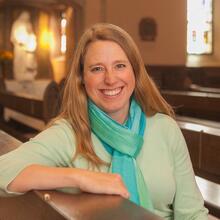Maybe fearing death means simply that parenthood has brought me to the end of a long adolescence, so I am finally abandoning the illusion of immortality so typical of an adolescent. But it is not only the prospect of my own death that suddenly seems more realfrightening as that is. After all, who can replace a mother? But more than that, there is the sensation that I will never again rest easy, because now I fear my son’s death. My well-being is inextricably linked with the well-being of another in a way so deep that not even my marriage has prepared me for it.
And yes, though I fear the death of my son above all, I also fear the deaths of othersmy husband, my motherbecause I need them more now and my son needs them. It was I, of course, who called to sign us up for life insurance; and when the company needed to speak to my husband on the phone to finalize one last detail, I called him right away. Please call them before you leave work, I nudged. Laughing, he said, What, are you afraid I’m going to get hit by a bus on the way home? Yes, I said. I am afraid.
I think of the old stereotype of the hovering, anxious, overprotective mother and the good-natured husband and kids who laugh off her irrational fears or roll their eyes and promise that yes, they will call when they get there or wear a hat or look both ways when they cross the street. Am I beginning to fit that stereotype? When I creep into my son’s room each night to make sure he is covered warmly, I still check to see if he is breathing. And the first time I left my son alone at home with my husband and went out to brunch with my brothers at a restaurant literally around the corner, I couldn’t last even half an hour before slipping out to call home and see if they were okay. When I came back, my brothers laughed, of course. Finally one of them said, Gee, maybe our mom was normal before she had us, too.
Yes, I have left normalcy behind for the uncharted and terrifying land of a mother’s powerful imagination. Perhaps my fears are irrational, overblown, even hysterical. But they are not out of proportion to the force of my love for this child.
Anyway, this fear of death is also a real gift. What can my faith mean if I do not fear death? Hope is misplaced if not born from real fear. Who can fully comprehend a God who would become flesh if they have not held a pitifully frail newborn on Christmas Eve and thought, You became this? But it is not so amazing that he became man; a full-grown miracle-worker who teaches with authority is an impressive figure. What is truly amazing is a God who would become an infant, subject to the painful task of adjusting to light, to cold, to gas painsand to fearful, inexperienced parents.
If the incarnation is understood more deeply in the frailty of an infant, it seems that the possibility of resurrection also becomes most real when death is near. The moment when I knew I actually believed itthat this is not all there is to thingswas on the night I was present at an elderly friend’s death and went home filled more with joy than grief. Now I find that resurrection is real again, as real as my fear. Fear is not so different from wonder. It is the experience of this small miracle, this new and fragile life, which brings home the possibility of so great a miracle. So along with the Maccabean mother (whose seven sons were killed before her eyes), I must say: I do not know how you came into being in my womb. It was not I who gave you life and breath, nor I who set in order the elements within each of you. Therefore the Creator of the world, who shaped the beginning of humankind and devised the origin of all things, will in his mercy give life and breath back to you again.
Yes, of course: It was a mother who was the very first in the Bible to speak of resurrection.







